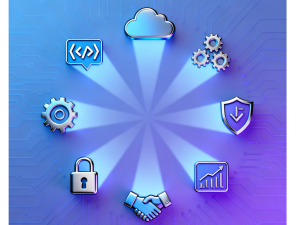There’s a quiet debate playing out in study groups, classrooms, and dorm rooms across the globe: is using ChatGPT to summarize a textbook chapter smart or shady? Is QuillBot just another way to refine your writing, or a shortcut that skips real learning? And what about GitHub Copilot or AI-powered coding assistants — are they tutoring tools or digital crutches?
In 2025, artificial intelligence will become embedded in student life. Whether you’re prepping for a cybersecurity exam or writing your first Python script, AI tools are everywhere. But so are questions about fairness, originality, and integrity.
Let’s unpack what students are really doing, how institutions are responding, and what it means to use AI ethically without crossing the line.
The Tools Students Are Actually Using
Today’s learners aren’t just Googling answers. They’re:
- Using ChatGPT for generating code snippets, essay drafts, and concept explanations
- Turning to QuillBot to improve writing style, grammar, and paraphrasing
- Leveraging Otter.ai and Notion AI to transcribe lectures and create smart summaries
- Exploring AI flashcard generators, quiz builders, and even custom GPTs as virtual tutors
These tools promise speed, efficiency, and clarity — a massive relief in a world of information overload. But what starts as productivity support can sometimes become a blurry shortcut.
Why the Line Between Help and Cheating Is Getting Fuzzy
Back in the day, copying your classmate’s homework was a clear-cut case of dishonesty. Today, copying AI-generated content feels… different.
It’s not always obvious what counts as original work anymore:
- Is it cheating to use ChatGPT to brainstorm essay topics?
- What about feeding it your outline and asking for a first draft?
- If an AI tutor walks you through a solution, did you solve the problem?
Many students say they’re just working smarter, not cheating. But educators are split.
What Institutions Are Saying
Colleges, bootcamps, and online academies are scrambling to catch up.
Some have started:
- Updating academic integrity policies to include AI-specific rules
- Training instructors to detect AI-generated submissions
- Allowing AI-assisted work with disclosure
Others are embracing the shift, teaching students how to use these tools ethically:
- Prompt engineering workshops
- Lessons on verifying AI output and avoiding plagiarism
- Assignments that emphasize reflection and process over perfect output
Ascend Education, for instance, encourages responsible use of AI tools by integrating them into guided learning experiences rather than banning them outright.
What Students Are Saying
Ask any student today, and you’ll hear a mix of excitement and anxiety.
Samantha, a 20-year-old IT learner, says, “AI helps me break down complex topics. I still do the learning, but it makes it feel less overwhelming.”
Miguel, 26, studying part-time while working, says, “If I didn’t use AI to summarize my reading, I’d fall behind. It’s how I stay afloat, not how I cheat.”
But others worry that dependence on AI tools is weakening their critical thinking skills or masking gaps in understanding.
So Where Is the Line?
Here are some guiding questions students are using to self-check their AI usage:
- Did I understand the material better after using the tool?
- Could I explain this without the tool now?
- Is the tool doing the thinking for me, or helping me think?
- Would I be okay explaining how I used AI to my instructor?
Ethical use means transparency, intention, and awareness.
Tips for Using AI Ethically in Study Life
If you want to study with AI without falling into the grey zone, try this approach:
- Use AI to supplement, not substitute. Ask it to explain concepts, not write full assignments.
- Cite your AI use. Just like citing a book or website, transparency matters.
- Pair AI with traditional methods. Mix flashcards, notes, group study, and manual problem-solving.
- Reflect on your learning. Keep a short learning journal: “What did I learn today? What did I struggle with?”
- Don’t use AI to bypass assessment. If it’s an exam, quiz, or graded task, that should be your work—not the bot’s.
What This Means for Tech Education
As AI gets smarter, ethical literacy becomes just as important as digital literacy. Tomorrow’s IT professionals won’t just need to use tools like ChatGPT—they’ll need to understand their limits and responsibilities.
This moment isn’t about banning innovation. It’s about building integrity into how we learn.
Educators and learners alike are still figuring it out. But one thing is clear: in a world of infinite shortcuts, choosing the path that actually helps you grow is the smartest move of all.
At Ascend Education, we’re here to help students learn how to learn—with tech, with tools, and with integrity.
Final Thought:
In 2025, the real test isn’t just about passing exams. It’s about preparing for a world where knowing how to think, not just what to type, is what sets you apart.





